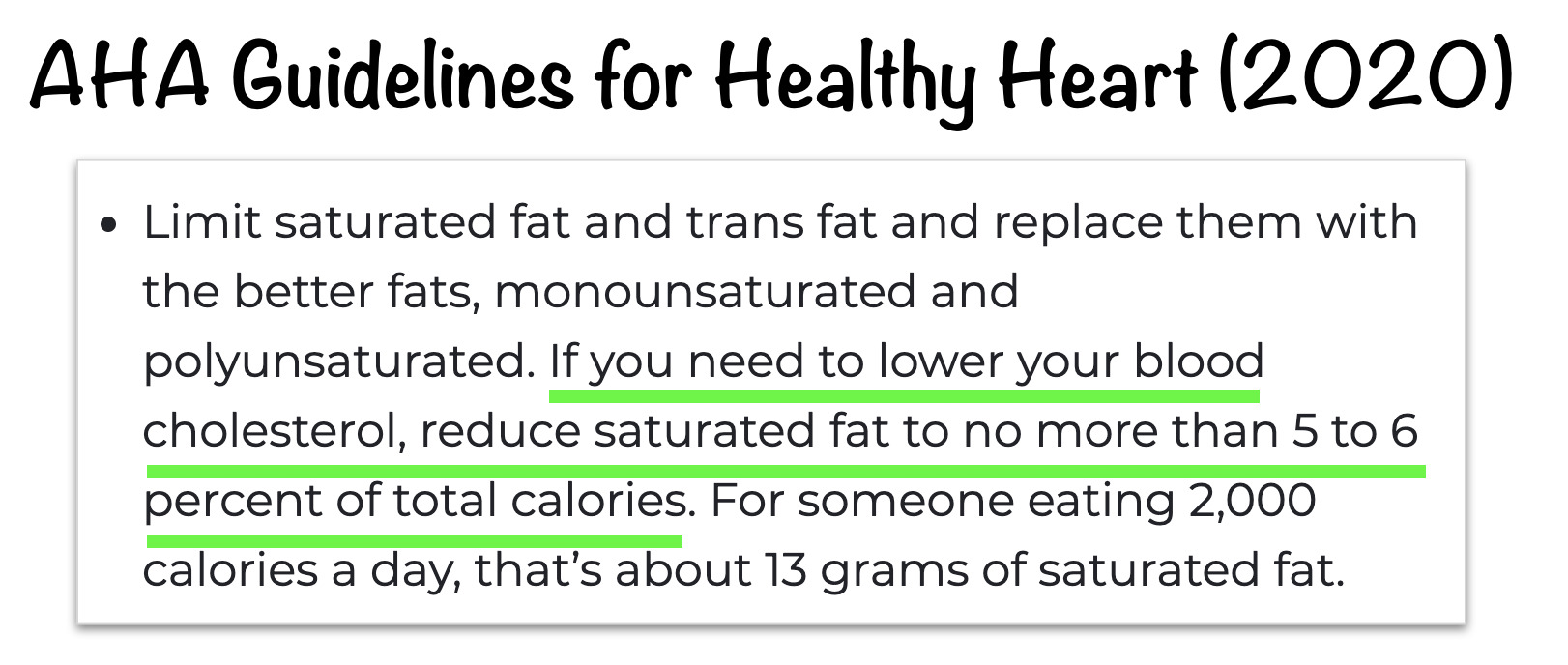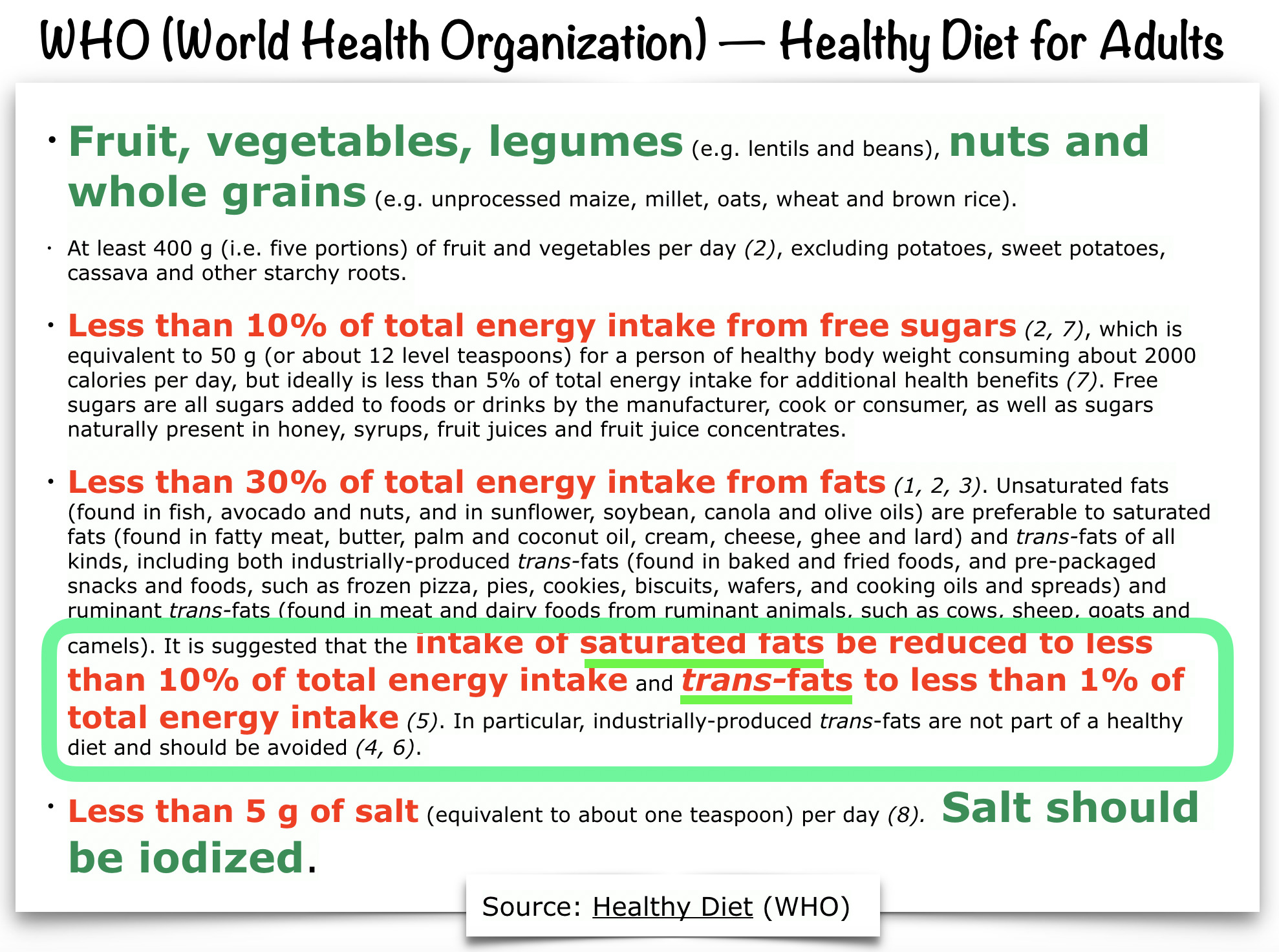- Institute of Medicine (IOM): As low as possible (concerns for elevated risk of Coronary Heart Disease).
- American Heart Association (AHA): Less than 5% to 6% of total calories daily.
- DASH Diet: Less than 6% of total calories daily.
- Govt of India (National Institute for Nutrition, ICMR): Less than 8% to 10% of total calories daily.
- USDA Dietary Guidelines (USDA): Less than 10% of calories daily.
- World Health Organization (WHO): Less than 10% of calories daily.
In 2006, Institute of Medicine (IOM) published DRI: Dietary Reference Intakes, an encyclopedic, 1330 page report on macro- and micro-nutrients. On Page 70, they recommend that dietary intake of all three of these be minimized: cholesterol, trans fats and saturated fats. For more information, see Trans Fats, Saturated Fats and Heart Disease & Cholesterol.
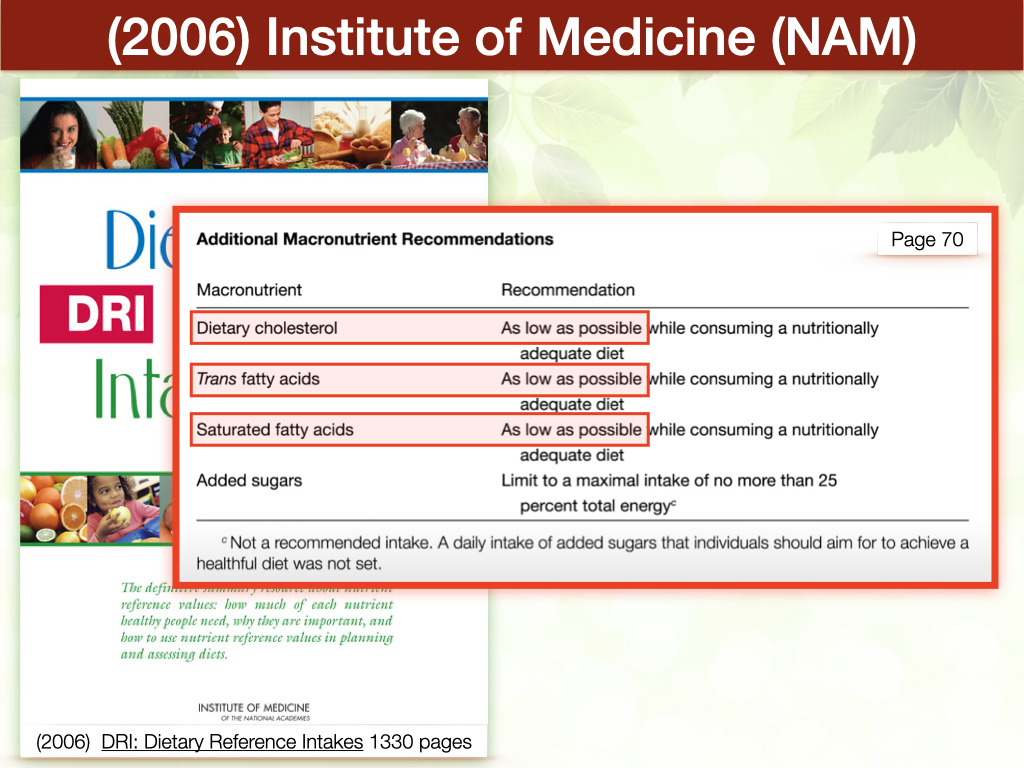
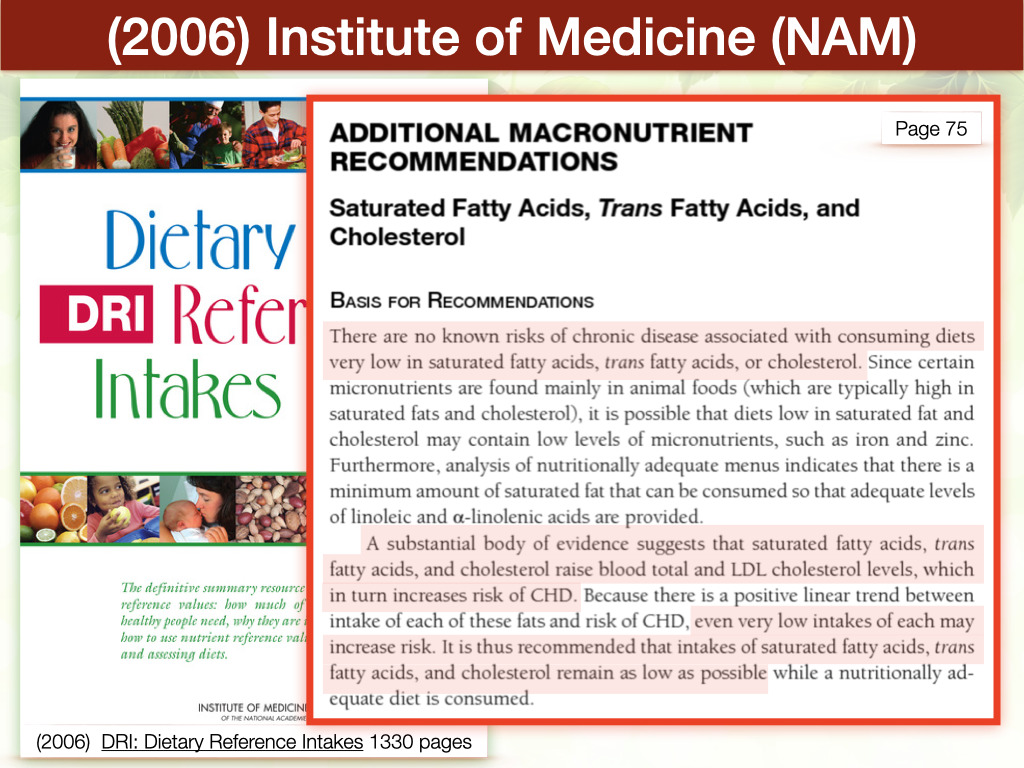
(2 mins) Transcript. Dr Greger's summary: "The intake of trans fats, which come mostly from junk food and animal products; saturated fat, mostly from dairy products and chicken; and cholesterol, coming mostly from eggs and chicken, should be as low as possible."
USDA 2020 Dietary Guidelines for Americans echoes the recommendations by Institute of Medicine / National Academy of Medicine:
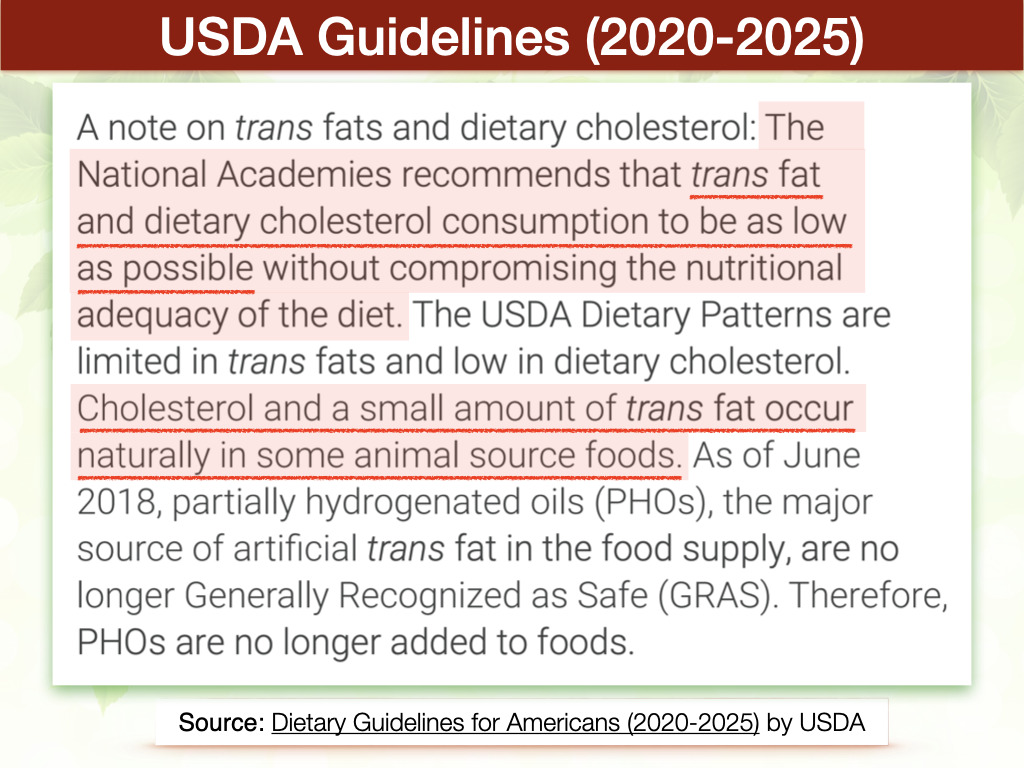
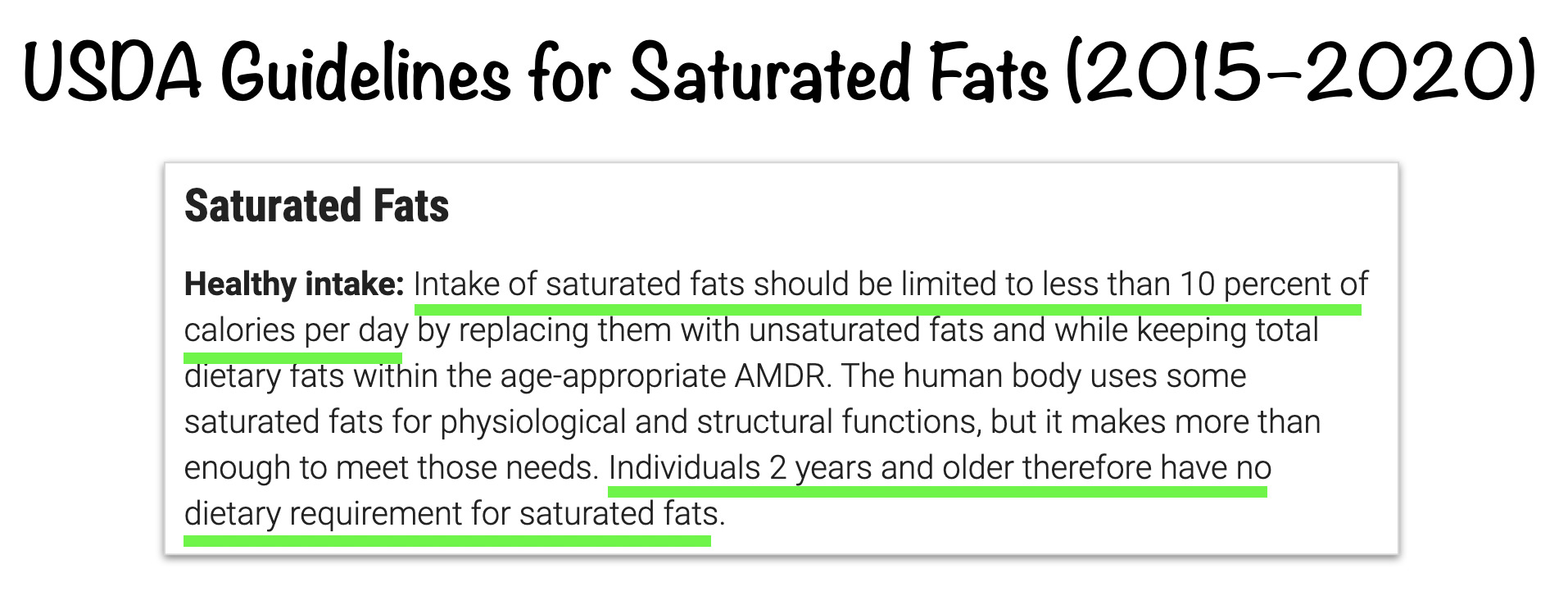
Source: Dietary Guidelines for Indians by National Institute of Nutrition, ICMR, India (2011).
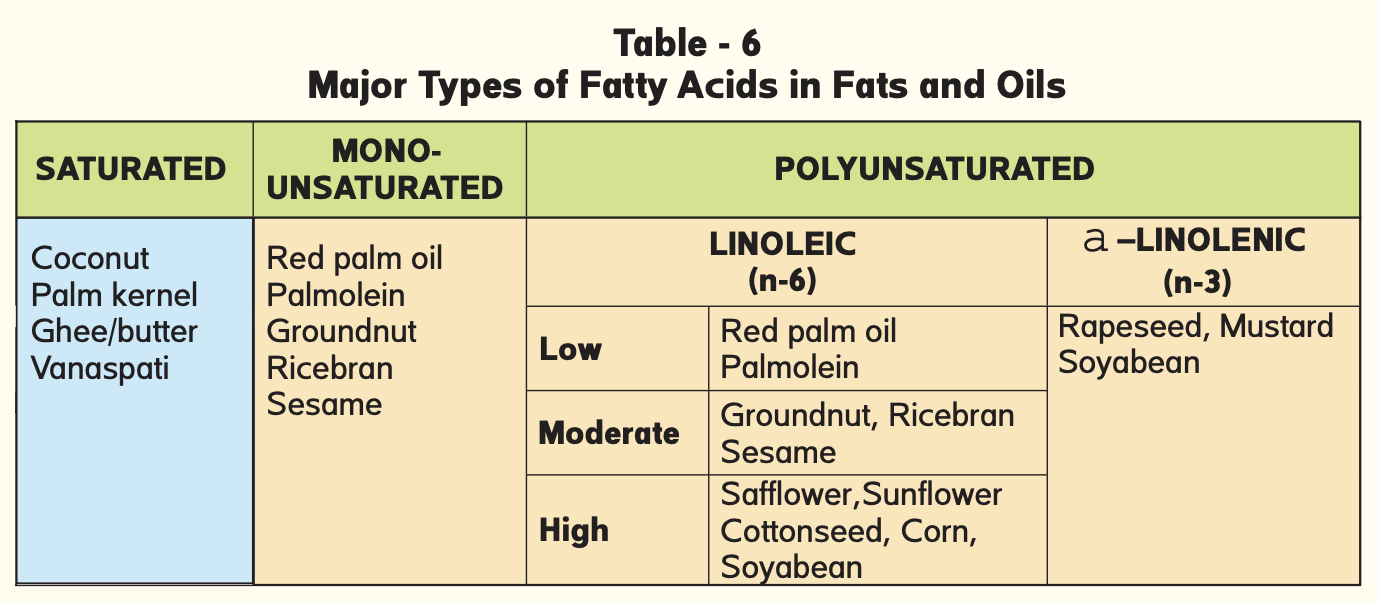
DASH Diet recommends less than 6% intake of saturated fats. See DASH Eating Plan: An Eating Pattern for Diabetes Management by Amy Campbell, Diabetes Spectr. 2017 May; 30(2): 76–81.

 Instagram
Instagram YouTube
YouTube